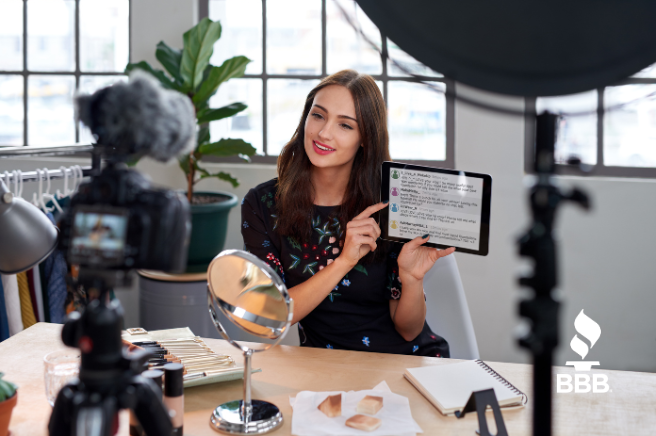Published Jan. 28th, 2024
FTC warns influencers, trade groups about disclosures on posts
Would you give less weight to a glowing review about a product if you knew the endorser had been paid to trumpet it? You have a legal right to know if there’s a financial or other relationship between a company and someone endorsing its products. The FTC has sent letters to two trade associations and twelve “influencers” warning them about the lack of adequate disclosures in social media posts regarding the safety of aspartame or the consumption of products containing sugar.
Influencer marketing occurs primarily on social media and involves people who purportedly have expertise or social influence in a particular field. They might include athletes, celebrities, and artists, as well as people whose names might not be recognizable to the general public but who have tens of millions of social media followers. Popular influencers include athletes Cristiano Ronaldo and Lionel Messi; celebrities Selena Gomez and Justin Bieber; and PewDiePie, known for his comedic videos on YouTube. The leading names will vary depending on the industry or type of content and the social media channel. None of those mentioned were involved in this FTC action.
The FTC’s Endorsement Guides dictate that an influencer must disclose any “material connection” with a brand or product being endorsed unless the connection is already clear from the context of the communication. A “material connection” would include a business or family relationship, monetary payment, or the provision of free products to the endorser. The disclosures have to be easy for consumers to see and understand. For example, an endorsement in a video should be accompanied by a disclosure in the video, not in a description uploaded with it.
Influencers can’t talk about their experience with a product they haven’t tried or say it’s terrific when they thought it was terrible. And they can’t make up claims about a product that would require proof the brand or advertiser doesn’t have, such as scientific proof the product can treat a health condition.
The FTC warning letters went to the American Beverage Association, The Canadian Sugar Institute, and twelve registered dieticians and other online health influencers. Social media posts included “Aspartame increasing cancer risk?! Nope! Let’s talk about it” and “It’s okay to still enjoy your non-sugar-sweetened beverages” because “these beverages are absolutely no threat to your health.” The FTC says the influencers may have failed to adequately (if at all) disclose that they were paid to endorse the products.
Samuel Levine, the Director of the FTC’s Bureau of Consumer Protection, said, “It’s irresponsible for any trade group to hire influencers to tout its members’ products and fail to ensure that the influencers come clean about that relationship. That’s certainly true for health and safety claims about sugar and aspartame, especially when made by registered dieticians and others upon whom people rely for advice about what to eat or drink.”
The letters included a Notice of Penalty Offenses citing unfair or deceptive practices in the use of endorsements and testimonials and asked the recipients to respond within 15 working days explaining the actions they would take to address the FTC’s concerns.
Be skeptical of exaggerated claims about a product or service, regardless of who’s making them. Look at a variety of sources, including well-known websites that feature trustworthy and impartial expert reviews.
